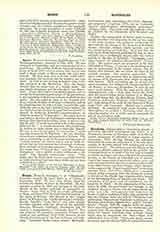

Hanse, BLESSED EVERARD, English martyr; b. in Northamptonshire; executed July 31, 1581. He was educated at Cambridge, and was soon presented to a good living. His brother William, who had become a priest in April, 1579, tried to convert him, but in vain until a sharp attack of illness made him enter into himself. He then went over to Reims (1580-1581), was ordained, and returned, but his ministry was very short. In July he was visiting in disguise some Catholic prisoners in the Marshalsea, when the keeper noticed that his shoes were of a foreign make. He was closely examined, and his priesthood was discovered. As yet there was no law against priests, and, to satisfy the hypocritical professions of the persecutors, it was necessary to find some treason of which he was guilty. He was asked in court at the Newgate Sessions, what he thought of the pope’s authority, and on his admitting that he believed him “to have the same authority now as he had a hundred years before”, he was further asked whether the pope had not erred (i.e. sinned) in declaring Elizabeth excommunicate, to which he answered, “I hope not.” His words were at once written down as his indictment, and when he was further asked whether he wished others to believe as he did, he said, “I would have all to believe the Catholic faith as I do.” A second count was then added that he desired to make others also traitors like himself. He was at once found guilty of “persuasion”, which was high treason by 23 Elizabeth. He was therefore in due course sentenced and executed at Tyburn. The case is noteworthy as one of the most extreme cases of “verbal treason” on record, and it was so badly received that the Government had afterwards to change their methods of obtaining sentences. The martyr’s last words were “O happy day!” and his constancy throughout “was a matter of great edification to the good”. The Spanish ambassador wrote, “Two nights after his death, there was not a particle of earth on which his blood had been shed, which had not been carried off as a relic.”
J. H. POLLEN

